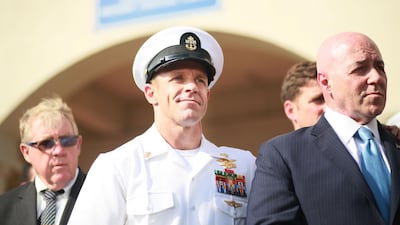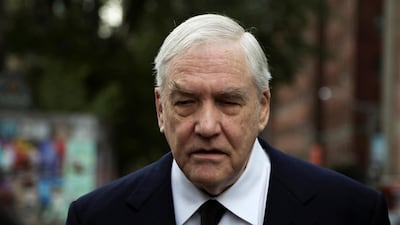On Wednesday, President Donald Trump used his executive power to pardon a number of close allies, including Roger Stone, former campaign chairman Paul Manafort and Charles Kushner, the father of his son-in-law and advisor, Jared Kushner.
Mr Trump previously sparked controversy in November when he pardoned his former national security advisor, Michael Flynn, who pleaded guilty in 2017 to lying to the FBI about his contacts with Russian officials. Manafort, 70, was charged as part of the same investigation.
At the time, Robert Mueller’s Special Counsel investigation was looking into allegations about foreign interference in the 2016 elections, on behalf of Mr Trump’s campaign.
The recent pardons bring the total number of people who have had sentences overturned or investigations quashed by Mr Trump to 49. Once again, the question of 'executive clemency' and pardoning is back in the spotlight.
How then, does the presidential pardon work?
It may seem at odds with day-to-day politics in one of the world’s oldest democracies, but presidential pardons are enshrined in the US Constitution.
America's founding political document contains the “Pardon Clause”, which allows the president to pardon individuals, including members of the president’s family.
State crimes are exempt from presidential intervention – so most felonies, such as murder, cannot be covered by a presidential pardon. Federal crimes typically cover matters of national interest, for example, breaking customs laws, or crimes that cross state boundaries.
Mr Trump has also said he could, if pressed, pardon himself, although some lawyers note that this would not be constitutional.
Importantly, Mr Trump can use the clause to stop an investigation, to stop a punishment from being carried out or to commute a sentence.
The latter was the case for Alice Marie Johnson, who Mr Trump pardoned in 2018, after she served a 21-year sentence for cocaine trafficking.
US model and celebrity Kim Kardashian-West had campaigned on Ms Marie Johnson’s behalf, using Mr Trump’s favourite social media platform. Ms Kardashian-West's husband, Kanye West, has in the past been a vocal supporter of Mr Trump.
Understandably, presidential pardons are the subject of considerable controversy: former president Bill Clinton famously pardoned his brother, Roger, as well as issuing several other pardons that were seen as politically motivated.
Mr Trump has drawn particular criticism however.
According to lawyers Jack Goldsmith and Mark Gluck, writing in the blog Lawfare, 29 of 34 individuals pardoned by Mr Trump may have advanced “a clear political goal of the president” or may have had a personal connection to him, or his friends.
Before the recent wave of pardons, here are some of Mr Trump’s most controversial interventions:
Dinesh D’Souza
D'Souza, who has regularly appeared on Fox news, pleaded guilty to making illegal campaign contributions in the 2012 Senate campaign of his friend, Republican Wendy Long. D'Souza was pardoned by Mr Trump in 2018.
Bernard Kerik
The former New York City police commissioner and conservative news pundit was found guilty in 2009 of tax fraud and lying to government officials, during a vetting process for the position of Homeland Security secretary. He was pardoned by Mr Trump in February.
Eddie Gallagher
One of three former US servicemen accused of war crimes and later pardoned by Mr Trump, US Special Forces commander Eddie Gallagher was accused by colleagues of shooting civilians during the battle of Mosul in Iraq in 2017. A military court cleared him of the most serious charges – shooting civilians – and Mr Trump later reversed his demotion.
Conrad Black
The former media mogul and biographer of Mr Trump was convicted in the US of fraud and obstructing justice in 2007. Mr Trump pardoned Black in 2019, describing him as a friend.
Paul Pogue
The Texan businessman was accused of failing to pay taxes in 2010, although he pleaded guilty to the charges and settled what was owed. In February, Mr Trump pardoned Mr Pogue, whose family reportedly made substantial donations to Mr Trump’s 2020 campaign, according to the Federal Election Commission.








